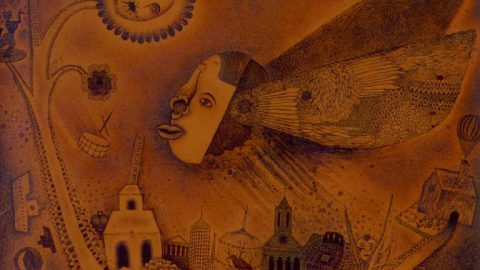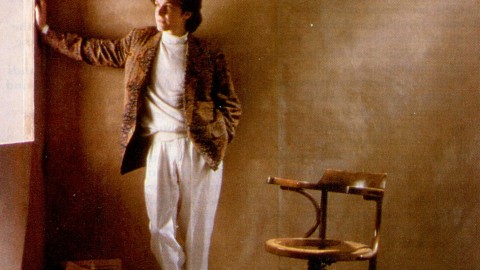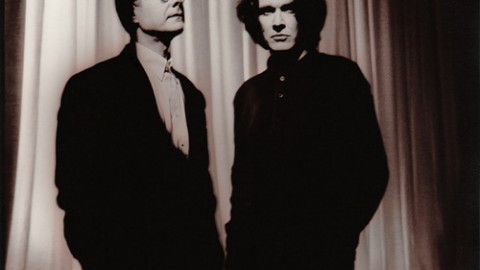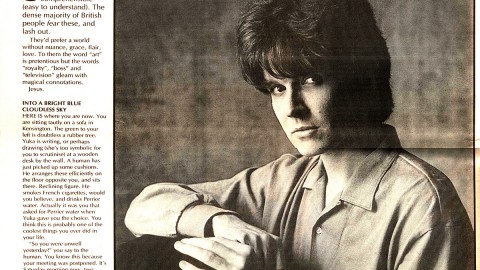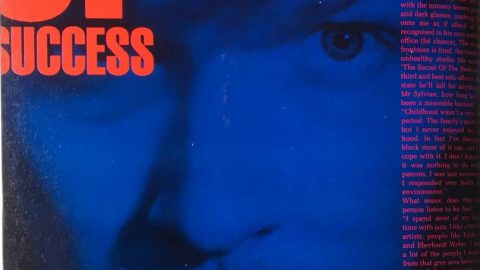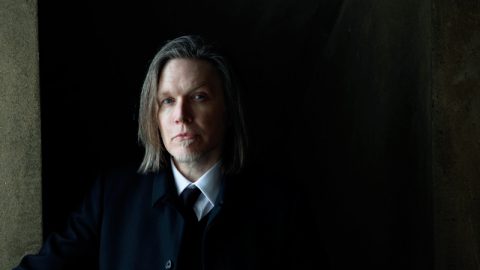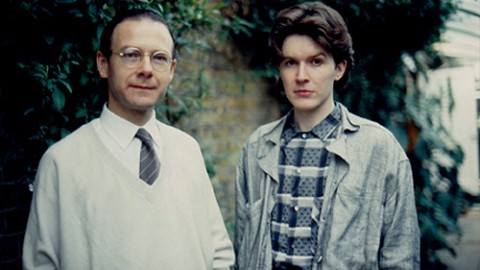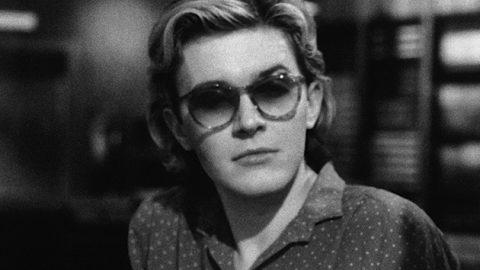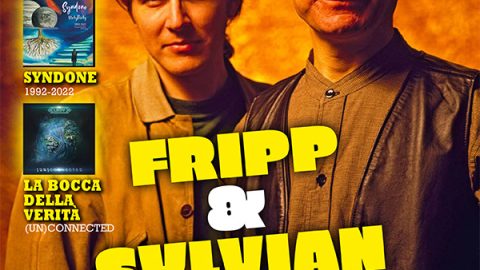By Lisa Jackson for Cream Magazine
In the early 1980’s, while most new romantics played it bright, fey and dandy, DAVID SYLVIAN and his band Japan subscribed to a kind of melancholic futurism. They were in a way, ahead of their time in the pre-millennial tension stakes. One of Britain’s most innovative bands, and an act many say helped pioneer the ambient movement, Sylvian and company pushed boundaries both sonically and sentimentally. LISA JACKSON catches up with the ex-Japan man and talks spirituality, past successes and Dead Bees on Cakes.
It’s been almost eighteen years since Japan split. What do you make of the continuing fascination with the early years of your career
I think the media are interested in the past because the work that I did with Japan was the most commercially successful work, so it’s a key reference point for them. I accept that, but I don’t want to delve into it because I really don’t have much interest in keeping that focus alive ; I’m not in the public eye trying to sustain that profile, I’m just here to let people know about (Dead Bees on a Cake) the new album.
“Would you agree that the music you made with Japan has been influential in terms of inspiring other artists to put boundaries?”
I don’t read articles, reviews or whatever pertaining to my work and so I have no way of knowing just how my work is perceived out there in
the world. I only have my own take on the work to go by. I realise that there were some important qualities to Japan that could have a good
influence on future generations of musicians, certainly to do with the programming of electronic sound and arranging compositions. I’m not entirely surprised that people may have picked up on it, taken some of those positive aspects and expanded on them.
You’re not bid on nostalgia are you?
No, not at all. When the band broke up in 1982 a lot of things were open to question in all aspects of my life. It was a wonderful period of change, a period of questioning and re-evaluation. Coming out of that, my motivation for creating music entirely changed. In a sense I found a philosophical grounding; a set of morals that guided my life. All of the music that I’ve produced since 1983 I stand by, and it reflects something of who I am. All of the work before that time was borne out of an entirely different mind set and it’s difficult for me to relate to that work in any way, shape or form.
Over the years, you have had a wide range of artists contribute to your solo albums, for instance Ryuichi Sakamoto and Robert Fripp. How did you come to have Talvin Singh (Brit-Asian DJ/Producer/remixer) on Dead Bees?
Yes, everybody seems to ask about Talvin. Normally I’m very familiar with the body of work of the artist I’m inviting into the studio. Talvin was one of the exceptions. I’d worked with a tabla player in New York and the sessions hadn’t gone particularly well. I was in Real World Studios in Bath in England looking for someone to work with and the person I was co ordinating the album with happened to work with Talvin on a too.. I think with Siouxsie and the Banshees. So he was brought in as a classical tabla player. I know nothing of his background and nothing of the aspects of his work until I met him. Though now I’m familiar and I really enjoy what he does.
Would you say that the feel of the album is a lot more positive than a large part of your earlier work?
I think you could say that most of my solo work is celebratory in mood but it’s maybe not always apparently so, because I allow the shadows to come in and because I don’t thing you can embrace life fully without the darker side being present. I think it’s up to the individual to find that peace, to find that joy.
I’ve noticed that on the visual side of things you’ve brought Anton Corbijn in again for your sleeve photography?
It’s as much the man as it is the work. I’ve know Anton since 1981 and I hadn’t been photographed for years and was very reluctant to make this move back into the spotlight. I wanted to ease myself back into it so I chose someone that was familiar, that I knew well, and that I knew would do a great job. He’s a great man and a very undemanding photographer.
Tell me about your wife (Ingrid Chavez, ex-Prince progege/vocalist/poet).
Though it’s not necessarily restricted to one other person, I certainly believe in the concept of soul mates and I feel I have found that in Ingrid. There’s a wonderful grounding effect that we have on one another and when we’re away from each other we feel somewhat rootless.
You’ve also become a father – how has that altered your approach to life?
All the clichs are true when it comes to fatherhood, and I could recount them for you but I’m sure you’ve heard them all before. That level of unconditional love that is introduced to your life is enormously powerful. And you learn an awful lot about yourself through children. You see yourself in them and can focus in on habitual behaviour and break patterns that aren’t useful to you.
You seem to be very in touch with yourself. Would you call yourself a spiritual person?
Well, my practice takes in aspects of Hinduism for sure because our (Ingrid and David’s) teachers have come from that background themselves, but it’s open and I don’t think any of the teachers – well, none of the teachers that we go to, would ever be dogmatic about adhering to certain
teachings over others – it’s always, find the path that opens your heart the quickest. Whatever opens your heart, find it, and follow it.
David Sylvian’s album Dead Bees On A Cake is out through Virgin.
Kindly provided by the Ozboyz (back in April 2000….)
Cream Magazine online


